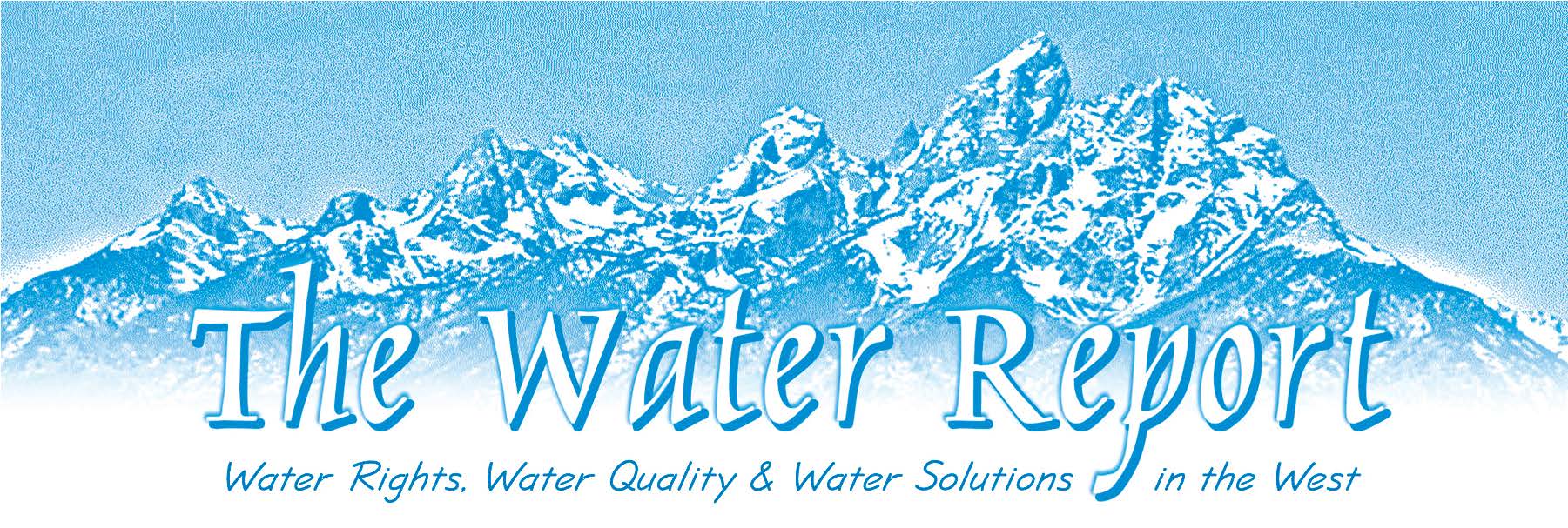Sept to Dec 2023 Edition 2023 State Conference Recap Session 1: Northwest Washington Summary by Arielle Gervasi, Water Resources Planner at Stantec Consulting Session 1 included the following speakers: Robin McPherson, Jon Sitkin, and Monte Mills. They discussed various legal aspects of the basin adjudication process as pertinent to the ongoing WRIA-1 adjudication. The WRIA adjudication is currently evaluating nearly 5,000 surface and groundwater rights claims across the Northwest corner of Washington state in the Nooksack River and Whatcom County region. Robin McPherson, Washington State Department of Ecology gave an overview of the legal history of water rights law in Washington state and the three main roles of the Washington State Department of Ecology (Ecology) in water regulation: rulemaking (i.e., determining appropriate instream flows), maintaining an online water rights permitting system, and providing adjudications. The State General Stream Adjudication process was established in 1917 and historically occurred when there were competing water rights, and entails a court-issued decree designating appropriate water ownership and priority. Ecology then issues adjudicated certificates to water rights holders based on the court decree. This process and the certificates are considered definitive over the historical self-reported usage records. It has been found in Whatcom County that there are approximately 4,000 claims forms and many of the records do not accurately reflect actual water usage. A benefit to the adjudication certificates is that they can be banked, sold, leased, and challenged, whereas it is very difficult to do this with water rights claims. Lastly, McPherson closed with an overview of the planned timeline and process for the ongoing WRIA-1 adjudication over the next ~4 years. It is anticipated that next spring of 2024, Ecology will file for the adjudication, then users will have 1 year to submit their claims, and another 3 years to file evidence of usage. McPherson emphasized that targeted outreach and engagement by Ecology with users in the county will be essential to instigate this process and complete these tasks on schedule while also providing adequate support to local water users. Jon Sitkin, CSD Attorneys focused on local issues that have arisen with the implementation of adjudications, framing this with personal experience with clients in the WRIA-1 region. Sitkin noted that some similarities could be made between the dynamics of sports and the water rights adjudication processes. There are diverse sets of interests, or “teams” within the water users and suspected unauthorized usage of water and incomplete records. This has led to a lack of trust, confusion, and conflict between users and state and local agencies, as many users have sought to avoid adjudication for decades. Sitkin highlighted the barriers and opportunities for settlement within an adjudication process. The main issues includes the diversity of interested groups and parties with increasing pressure from new interest groups and institutions for enhanced water management, the need for trust and engaged leadership from the public utilities districts, and additional pressures from climate change creating extreme and variable hydrology. The opportunities that could arise out of the upcoming adjudication include pushing for use of more updated models and the best available technology, opportunity for Ecology to fund additional studies and monitoring, and to get closer to an adaptive management process. In the interest of the best possible outcome for water users in the WRIA-1 region, it will be important to ensure that the adjudication process and timeline is not dragged out in the courts in order to avoid a “zero sum game.” Monte Mills, University of Washington School of Law Professor discussed the historical role and treatment of Native American treaties and water rights. Mills noted that the tribes will not be involved in the WRIA-1 adjudication process, as this process is led by the state and tribal interests are typically negotiated at the federal government level. Therefore, Mills focused the presentation on administrative challenges with the history of the tribal reserve rights. Indian treaties and water rights in the U.S. recognize sovereignty of the tribes with respect to their water usage. In 1891, the formal practice of treaty-making between tribes and the U.S. government was replaced with the concept of “agreements” or “reserved rights,” with the Milk River case (Winters v. United States, which eventually led to the Colorado River Basin Compact in 1922) in 1908 in Montana establishing the reserved rights doctrine. However, Mills argued that Indian water rights were essentially ignored in the 50 years following the Winters case, through the early 20th century. This has changes in more recent years, particularly following the Arizona v. San Carlos Apache Tribe case which established the McCarren Amendment and determined that tribal water rights may be included in adjudications. In the Q&A portion following the presentations, Mills noted that tribes in the region are commonly most concerned with future uses of water. Climate change is the common enemy and supply solutions must be found that bring everyone to the table. Mills also discussed a recent significant Supreme Court case and jurisdiction in Arizona v. Navajo Nation, in which the Navajo Nation wanted to secure a water right within the mainstem of the Colorado River. It was determined that the U.S. has a trust duty to evaluate whether the tribe could obtain this right but not an obligation to be proactive in supporting new infrastructure to help secure access to that water. An audience member noted that in the case of the Yakima Basin Integrated Water Management Plan in Washington in 2019, Congress decreed an amount of water that the tribe was entitled to and asked how commonly this is implemented by Congress. Mills noted that in the context of settlements this is very common, as most are congressionally ratified in order to reserve the water right; however, across water rights, this is not common as part of the unilateral decision-making process. Previous - Keynote Address Next - Southwest Session |



